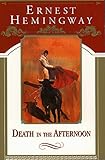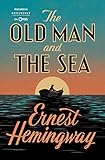Martin Seymour-Smith was a grumpy fellow. A promising poet who took up writing big reference books of literary criticism, his highly idiosyncratic 1977 survey Who’s Who In Twentieth Century Literature is deliciously highbrow junk food. But like strawberry Pocky or matcha Kit-Kat, Seymour-Smith isn’t for everyone. His effort to catalogue the literary scene is full of curiously gleeful put-downs and undercooked psychoanalysis. He pronounces Hemingway “by no means intelligent … seriously overrated,” sums up Nabokov as “a distinguished lepidopterist” and “a minor writer of distinction,” and tenderly humiliates Updike’s Rabbit, Run as “brilliant … but too much so.” Who’s Who would be an impossible book to write today: Seymour-Smith is skeptical of literary personality at its core. The entries on particularly mythic writers like Hemingway and Faulkner show a dogged commitment to tearing down the aegis of respectability surrounding these figures.
As a critic he is digressive, laughably biased, and mean-spirited. For Seymour-Smith, even the century’s most celebrated writers deserve about as much humiliation as praise. Faulkner, for example, “worked from intuition and passion and never from what an educated man would call thought … if anyone believes that he possessed a mind in the usual sense, let him read the text of the Nobel Prize speech (1950): cliché-ridden, naive.” The entry goes on to praise the Yoknapatawpha novels and Seymour-Smith assures us “there is no doubt … of his high stature; and doubtless the poor work was part of the price—heavy and exhausting drinking-bouts were another—that he had to pay for his achievement.”
On Hemingway he is far less generous: “inept … he knew nothing about bull-fighting, as Death in the Afternoon (1932) which purports to be about it, makes painfully clear.” One has to wonder where Seymour-Smith had gotten his bullfighting intelligence, but no matter. After informing readers that The Old Man and the Sea is Hemingway’s attempt to describe how difficult it had become for him to produce anything of value, he dismisses it as “a portentous and pretentious analogy.” Worse still are Hemingway’s personal qualities: “He was a liar, he was treacherous to those to whom he owed most.” Finally, Seymour-Smith concludes that “the decency [Hemingway] found is limited and answers little.”
Seymour-Smith’s suspicion of material and critical success is obvious, and he tries his best to ignore it: The obligatory mention of Nobel Prizes is terse and unaccompanied by commentary, like the very mention of the achievement has to be torn out of him.
Listen to him on Sinclair Lewis, who won the Nobel in 1930: “Only of socio-anthropological interest; as a writer he is almost worthless.” And contemporary darlings like Heller, Tolkien, and Kerouac (“On the Road … was typed on long rolls of art-paper and reads like it”) do not even get the dubious honor of a long polemic: They are characterized more as cult leaders than writers.
Yes, Seymour-Smith is nasty, even cruel. And maybe he has too much fun demolishing “important” books and big egos. But Seymour-Smith was much more than a bundle of sassy contrarian impulse. If that was the extent of his contribution to literary criticism, Seymour-Smith could be safely forgotten: a minor figure, as he himself might say. But Seymour-Smith is not a jealous critic, an artistic failure who uses his prodigious intellectual powers to denigrate people who can do what he can’t. His tendency to humiliate the high and mighty is joined with a corresponding instinct to elevate the unknown and the under-appreciated. He is like that pitiful sports fan who roots for the underdog on a sort of sick, masochistic principle. He fawns over figures who are largely overlooked or still underrated today, as when he casually informs the reader that Wyndham Lewis was the greatest writer of the 20th century.
The zanily extensive entry on Lewis, more than twice the length of Faulkner’s and probably the longest in the book, calls Lewis’ The Human Age “the greatest single imaginative prose work in English of this century.” Seymour-Smith admires Gombrowicz and Rhys; Rebecca West‘s fiction, “though always evincing respect, has not had its due,” and her absolute doorstop Black Lamb and Grey Falcon is “great journalism”—though he can’t help adding in characteristic Seymour-Smith fashion—“if journalism can be great.” Isak Dinesin is “one of the most original writers of her time” and “it is hardly surprising that she should be attracting more and more attention.” Other writers Seymour-Smith praises are probably known almost exclusively to graduate students.
Seymour-Smith, for all his snobbery, is deeply progressive—he sees that the literary canon is criminally narrow, and he believes in the redistribution of prestige and attention. With his praise of the forgotten and his commitment to interrogating the greatness of the “greats,” he warns readers away from graven images. The famous and successful are not titans, invulnerable and remote figures whose work is sacrosanct. They are as small and compact as we are, they squabble and stumble just as we do.
Much ink has been spilled in laments for the death of the negative book review. Readers of Who’s Who nostalgic for the era of pugnacious critics will take immediate pleasure in the spiteful wit displayed on every page. But after that cheap thrill there is something else: gratitude and even trust. You have been taken into a confidence. Even if it is an icky one—after all, you didn’t really need to know that Seymour-Smith thought Yukio Mishima was “evil and cruel … no more than a nasty little boy.”
Seymour-Smith’s opinions, though designed to some extent to be abrasive, come from a somewhat more different lineage than the hatchet job, another literary tradition in danger of being lost. It is not so much that Seymour-Smith has a negative outlook—though he can be relied upon to dislike things—it is that he has an opinion at all, a clear viewpoint expressed with expertise and self-assurance. He is idiosyncratic, he is bold, and he avoids platitudes.
He is a curmudgeon. He has unpopular opinions. He is a voice of dissent. He is an enemy of the comfortably established; he is the ally of the unsung. Most of all, Seymour-Smith’s book is an antidote to today’s largely toothless criticism, a reminder of a time when literature was more confident in itself and its merits, to a time when critics like Seymour-Smith could be safely unloosed upon the reputations of literary darlings—when we might have even cracked a smile about it.
In this way Seymour-Smith is like the boisterous uncle of literature. He is the uncle who hasn’t been seen in awhile. He shows up to the house uninvited, has a couple of highballs, and then casually confesses shocking family secrets of which you had never dreamed. He will smoke cigarettes in the formal living room, but long after he’s left sheepishly, and maybe in a hurry, you’ll still think of what he had to say.
The post How to Have an Opinion: The Criticism of Martin Seymour-Smith appeared first on The Millions.
from The Millions https://ift.tt/2ypXev7






Comments
Post a Comment